South Carolina Hunting Laws
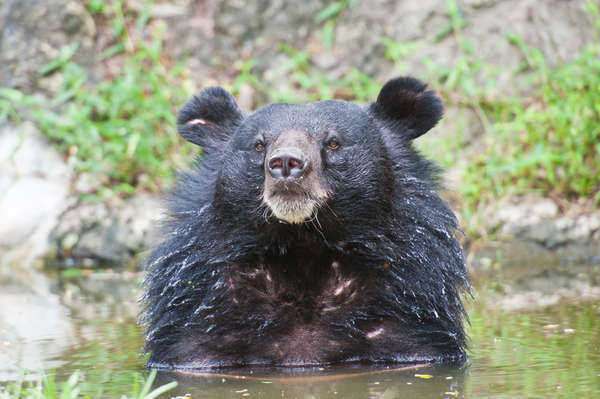


South Dakota has one of the strongest hunting traditions and therefore some of the most lenient state gun laws in the country. With approximately 17% of the population over the age of 18 legally registered to hunt, South Dakota is a state that is very friendly to the sport of hunting. Because hunting is so popular, South Dakota law on guns is among the most lenient in the country.
Citizens may choose to carry a concealed handgun on their person with a permit. Hunting in South Dakota is vital to the state's economy with over $275 million in state revenue from hunting related expenses like gun sales, equipment, licenses, and permits in 2004. South Dakota is home to 7 different gun companies hand producing premium hunting firearms and handguns annually.
To maintain the vitality of the South Dakota's large hunting economy and culture, conservationists, lawmakers, and hunters have worked together to create hunting legislation that promotes ecological sustainability. Hunters cannot use permanent tree stands to hunt big game on public hunting lands.
No turkeys may be shot while in trees or roosts. Lead shot is legal ammunition to shoot turkeys in South Dakota. However, the use of non-toxic shot is required on all public hunting lands. The use of night vision equipment or artificial lights to hunt animals is also illegal. The shining of a beam of artificial light at a game animal give hunters unfair advantage and is thus an unsustainable practice.
Hunting with lights is only legal in the case of hunting raccoons and badgers but are only to be used after a dog has chased them up a tree. Hunting Dogs in South Dakota must have all their vaccinations and other shots up to date and checked by a veterinarian. Electronic animal calls are not to be used to attract migratory birds as this gives hunters an unfair advantage with the exception of crows. This law also applies to all species of big game, including turkey. Taking game must only done with a firearm, bow and arrow, or by falconry. All other methods of hunting are illegal.
South Dakota hunting legislation also promotes safety and respectful human interaction. It is illegal to hunt on Native American Reservations as the sovereignty of tribal lands is to be respected by all. The use of motor vehicles on public hunting lands is prohibited except on designated roads and parking lots. The shooting of game from a moving vehicle is against the law on public hunting grounds in the state of South Dakota.
Harassment of hunters who show intent of lawfully taking and harvesting game is against the law. South Dakota is encourages all citizens to turn in poachers in the State. South Dakota has a zero tolerance policy against poaching; poaching is the act of illegally hunting on private property without permission. South Dakota made 183 poaching arrests in 2008 with total fines over 25,000 and over 1,000 total days of jail-time.
South Dakota is yet another state where hunting legislation serves the interests of both hunters and environmentalists in a harmonious matter. South Dakota's hunting legislation also institutionalizes the state's long tradition of hunting that dates back to the 19th century days of being an open frontier. Hunting and ecological conservation is not conflict of interest as many allege. South Dakota has some of the fewest endangered game species as a result of reasonable hunting legislation.

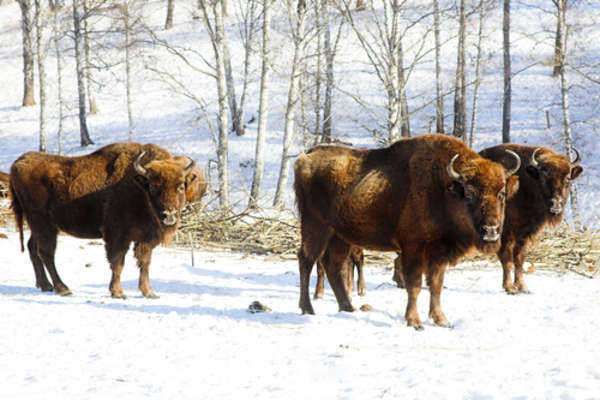
Vermont is one of the most rural states in the country; hunting is so popular in the Green Mountain State that hunting is permitted on Sundays! Hunting is a very cultural/traditional thing in this state, Vermont hunting acknowledges this and therefore offers many discounts on family hunting. There are more than 800,00 acres of federal and state public land open to hunting as well as ample opportunities on private land as well.
With Vermont’s antler restrictions into effect protecting yearling bucks, there has been a significant increase in the number of older, larger bucks in the deer harvest.
According to statistics of a New York study, 94% of hunters who are involved in accidents being mistaken for game, were not wearing orange. That is a shocking statistic, especially when 81% of New York hunters wear orange. Hunter orange is not mandatory when hunting in Vermont, but it is highly suggested. According to the statistics above, it might just be in your own benefit, after all, most states do require it.
There are four basic rules in order to ensure safety in Vermont hunting: (1) Treat every gun as if it is loaded, (2) Always point your gun in safe directions, (3) Do not put your finger on the trigger until you are ready to shoot, (4) Be sure of your target and beyond. The hunting laws in Vermont which touch on the guns clearly states there are no machine guns or auto-loading rifles with a magazine capacity of over 6 cartridges, except a .22 caliber rifle using rim fire cartridges. Handguns are permitted on the hunting grounds wherever rifles are permitted. Whenever firearms are permitted in Vermont hunting, shotguns, pistols and muzzle loading rifles are usable. Lights and laser beams are prohibited not only near public areas but also on the hunting grounds.
Hunting from a vehicle is illegal, whether in an automobile, an ATV, or any other. You need to be 50 yards away from the vehicle before firing at an animal. ATV’s are permitted only in areas of private land when given permission. Dogs are not allowed to take deers or moose at any point of the season. Authoritative figures with jurisdiction, such as law officers or a property employee have the right to shoot a dog if it harasses or attempts to take down an animal.
Vermont hunting is very exciting, at the same time, the Vermont law maintains a level of respect between fellow hunters as well as for the deer. One thing that is highly stressed is to not waste the game, and to not torture it by having it die slowly. You must make every reasonable effort to retrieve all game killed or crippled. Until such effort is made, such game shall be included in the daily bag. This rule does not allow you to trespass without permission of the landowner nor shoot game beyond established shooting hours. Whether on a deer hunt, or hitting a deer with your vehicle by accident, you must request a tag for the carcass through the Sheriff’s Department.
Always remember, hunting is a privilege, not a right. The only person who can create a cause of action to have their privilege revoked is you. Always keep that in mind, be friendly with your fellow hunters and do not try to torture or make the game feel lasting pain that is not part of the sport.
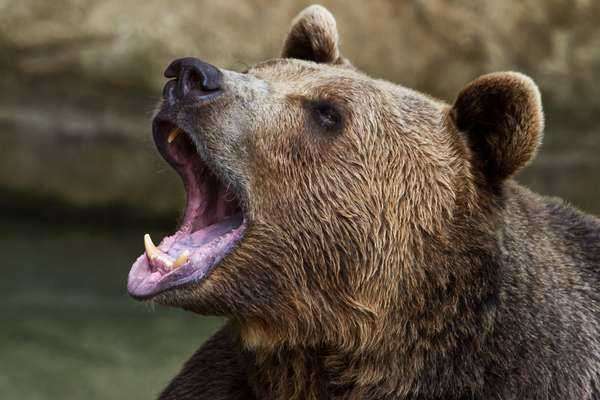 Virginia consists of scenic landscapes and a menagerie of different game to be hunted.
Virginia consists of scenic landscapes and a menagerie of different game to be hunted.
Virginia hunting is not as strict as most regarding their hunting laws, but like every other state, whatever gun laws they do honor, they also enforce heavily.
Like most states, Virginia hunting requires all hunters to to obtain a license, and are required to present to any form of authority if asked. The various forms of authority that have the jurisdiction to check for licensing are officers of the law, a landowner of the property being hunted on, or an employee of the property being hunted on. Keep in mind, your license is not valid until you have signed it!
Virginia hunting requires you to have resided in the state for a minimum of six
months prior to purchase of license. There are very few exceptions, the most
popular one being in state or out of state students. These students must be
enrolled in a bonafide Virginia institution, minimum college level.
The hunting laws in Virginia require all hunters to be wearing a blazing
orange, that may also mean fluorescent. Persons accompanying hunters must wear
a orange hat or blaze orange upper body clothing which is visible from all 360
degrees. Wearing orange is not required during muzzle loading or archery deer
hunting seasons. Virginia hunting permits dogs to be used to pursue wild birds
and animals during hunting seasons where not prohibited. If your dog runs on to
prohibited land, you are allowed to go retrieve the dog without hunting while
on that prohibited land.
Virginia hunting is very exciting, at the same time, Virginia hunting likes to
maintain a level of respect between fellow hunters as well as for the deer. One
thing that is highly stressed is to not waste the game, and to not torture it
by having it die slowly. You must make every reasonable effort to retrieve all
game killed or crippled. Until such effort is made, such game shall be included
in the daily bag. This rule does not allow you to trespass without permission
of the landowner nor shoot game beyond established shooting hours.
Always remember, hunting is a privilege, not a right. The only person who can
create a cause of action to have their privilege revoked is you. Always keep
that in mind, be friendly with your fellow hunters and do not try to torture or
make the game feel lasting pain, that is not part of the sport.
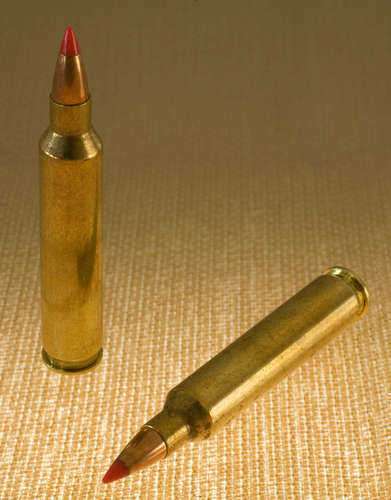 Hunting
Hunting
in Washington state is like a get away for both, the hunters and the family. In
order to hunt in Washington, you need to have the appropriate licenses along
with tags and permits for the species you are looking to hunt.
Hunting in Washington requires proof that they have completed a hunter
education class initially when acquiring a hunter’s license. Once the license
has been purchased, it automatically displays in the system in order to avoid
any complications that may occur. Hunter education classes focus on firearms,
outdoor safety, wildlife management, and hunter responsibilities. Classes can
last anywhere from 4-6 days with a total of 16+ hours of class time. Students
must pass a written test at the end of the week to complete the hunter
education class and be eligible for a hunting license. The Department of Fish
and Wildlife certifies all instructors of hunter education classes.
Big game Washington hunting has many requirements, and regulations that need to
be complied with. Big game includes deer, bear, elk, cougar, goat, bighorn
sheep, and moose. The minimum size rifle to hunt deer, elk and bear is a 24
caliber or 6mm center fire. Rimfire rifles are illegal to use for hunting big
game. Handguns must have a minimum four-inch barrel and fire a minimum of a 24
caliber center fire bullet. Deer, bear, and cougar may be hunted with 20 to 10
gauge shotguns shooting a #1 or larger buckshot. Other big game may be hunted
with 10 to 12 gauge shotguns shooting slugs.
Fluorescent orange is required to be worn by all hunters during most hunting
seasons. A minimum of 400 square inches must be worn on the exterior clothing
of a hunter. The orange must be worn above the waist and be visible from all
directions in order to prevent any safety hazards and to prevent clothing from
being an extra contribution to accidents.
Washington hunting is very exciting, at the same time, Washington hunting likes
to maintain a level of respect between fellow hunters as well as for the deer.
One thing that is highly stressed is to not waste the game, and to not torture
it by having it die slowly. You must make every reasonable effort to retrieve
all game killed or crippled. Until such effort is made, such game shall be
included in the daily bag. This rule does not allow you to trespass without
permission of the landowner nor shoot game beyond established shooting hours.
Whether on a deer hunt, or hitting a deer with your vehicle by accident, you
must request a tag for the carcass through the Sheriff’s Department.
Always remember, hunting is a privilege, not a right. The only person who can
create a cause of action to have their privilege revoked is you. Always keep
that in mind, be friendly with your fellow hunters and do not try to torture or
make the game feel lasting pain, that is not part of the sport.

West Virginia hunting has made some minor changes this season. They have
recently extended “antler less” deer hunting, which now begins in September for
both archery, and muzzleloader hunting. This decision was made due to two
reasons, first being the roughest times of winter affecting these hunters’
season, and for the rapid increase in deer population within the region.
Like every other state, there are different licenses for
different game. The main licenses held by hunters in the state of West Virginia
are classes A, X, and XJ. A being Buck only gun season, X being Bow, buck only,
and muzzleloader, while XJ is Junior bow, buck-only, and muzzleloader. There
are certain additions needed when hunting for bears, coyotes, antler less deer,
or other West Virginia hunting game.
Any person born on, or prior to January 1, 1975 must present
a certificate of satisfactory completion of a Hunter Education Course in order
to be issued a hunting license or a stamp. A person is not eligible to hunt
unless they have the proper licenses, a photo ID, and a proof of hunter safety
certification if required.
West Virginia has a point system set up for hunting
violations in order to prevent reckless or negligent acts. Persons found guilty
of either shooting a human or livestock automatically have their license
revoked for five years. The highest amount of points one could accumulate is
ten points, before their license is suspended for a total of two years. Points
are removed after the second year of revocation or upon renewal of license.
Like any other state, West Virginia land regulations are
designed in order to prevent recklessness, protect the interest and safety of
others, along with preventing intent of unethical conducts. It is illegal to
hunt in state parks, safety zones in state forests, and or wildlife management
areas. Without the permission of the landowner, it is prohibited to shoot,
hunt, or trap upon the fenced or posted grounds of another person. It is
illegal to hunt with a fully automatic firearm, or carry and uncased or loaded
gun after 5 am on Sunday in counties which prohibit Sunday hunting, except at a
regularly used firearm range, or except as provided in the trapping
regulations.
For any further questions regarding West Virginia hunting or
hunting on specific West Virginia land, there are many contacts who are readily
available to assist you. You can either go on www.wvhunt.com or contact (304)
558-2758.
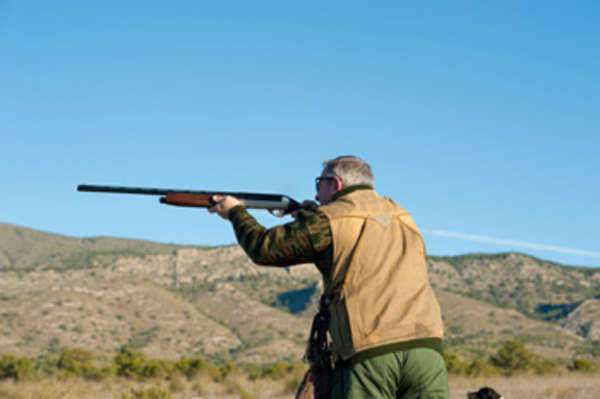
Wisconsin
hunting offers a variety of game, from white-tailed deer to black bears. Not
only does Wisconsin offer a menagerie of hunting species, but also beautiful
landscapes to hunt them on.
Initially when going to acquire your Wisconsin hunting license, you want to
know what you are looking to hunt. Different game requires different license so
you want to make sure you have the right licensing and steer clear with the
law.
There is a new law which formulated a hunting mentorship program for novice
hunters that will take effect September 1, 2009. Under the new law, a novice
hunter must be at least 10 years of age, possess the appropriate hunting license,
permits and tags, and must hunt with a mentor who is 18 years of age or older.
The novice hunter need not first complete hunter education to obtain a hunting
license or hunt, but may only hunt within arms reach of a mentor. The mentor
must have a current valid hunting approval, and must have completed a hunter
education course if born on or after January 1, 1973. The fee for hunting
approvals issued to youth ages 10 and 11 will be reduced. Visit the DNR website
or call 1-888-936-7463 for more information.
Anyone 12 years and older who graduates from a Wisconsin Hunter Education class
after January 1, 2009 for the first time may receive a free special Antlerless
Deer Carcass Tag. This carcass tag is valid for an antlerless deer in any DMU
during any open deer season with the appropriate license and corresponding
weapon. This tag is issued only through DNR offices that provide counter
service. This tag may not be used for group hunting.
Wisconsin deer hunting prohibits the use of dogs in order to hunt. A dog that
is actively engaged in a legal hunting activity, including training, is not
considered to be running at large if the dog is monitored or supervised by a
person and the dog is on land that is open to hunting or on land on which the
person has obtained permission to hunt or to train a dog.
Unless you are a Class C holder (visually handicapped permit owners), it is
illegal to use or possess laser sights while hunting. You are not allowed to
hunt with an automatic firearm, nor could you use any firearm to hunt a deer
within 100 yards of public, unless granted to do so on an individuals property.
It is illegal to sell, purchase, or barter any deer or deer part thereof
except: the head, skin not in spotted coat, and antlers not in velvet of any deer
lawfully killed, when severed from the rest of the carcass. It is unlawful to
possess a deer carcass unless tagged and registered as required. You are
allowed to transport another person’s unregistered deer only when accompanied
by the person issued the carcass tag. Once registered, anyone may transport the
deer.
Wisconsin deer hunting is very popular, at the same time, Wisconsin hunting
likes to maintain a level of respect between fellow hunters as well as for the
deer. One thing that is highly stressed is to not waste the game, and to not
torture it by having it die slowly. You must make every reasonable effort to
retrieve all game
killed or crippled. Until such effort is made, such game shall be included in
the
daily bag. This rule does not allow you to trespass without permission of the
landowner
nor shoot game beyond established shooting hours. Whether on a deer hunt, or
hitting a deer with your vehicle by accident, you must request a tag for the
carcass through the Sheriff’s Department.
As far as respect towards your fellow hunters, it is illegal to take someone
else’s game without their consent… the chances of them giving you their
game when they are out on the hunt is highly likely though. Another compliance
which needs to be met is wearing a blazing orange color when going deer
hunting. Not only does it prevent you from being fired at by accident, but it
also takes away the suspense from fellow hunters if they feel a deer is
approaching.
All in all, Wisconsin likes to keep their hunting clean, after all… it’s a
sport. Even Internationally played sports have their own codes of conduct,
which are solely there to keep the game fair. The essence of that fairness is
implemented when these rules and regulations were created, in order to ensure
safety and fair play, Hunt on!

